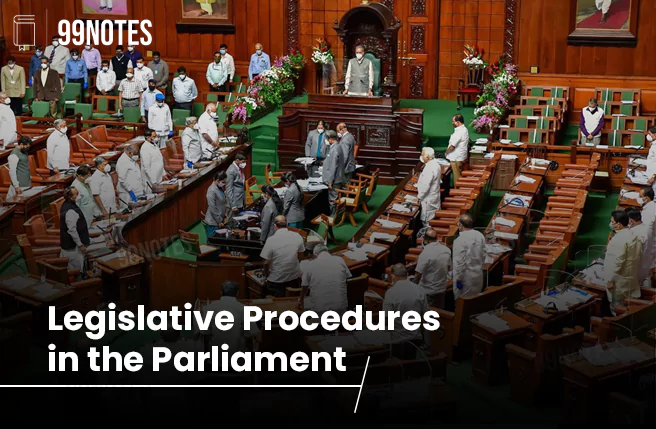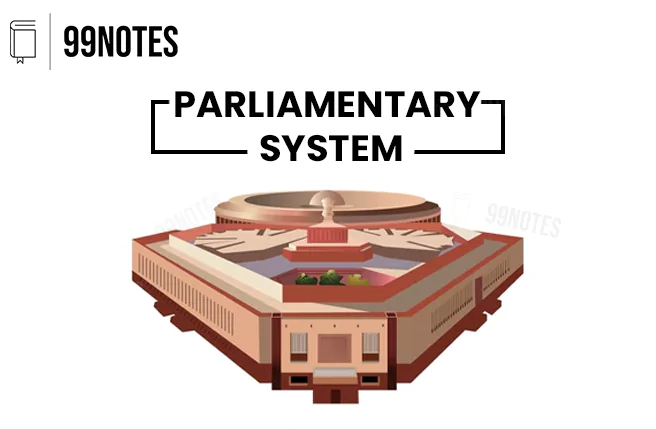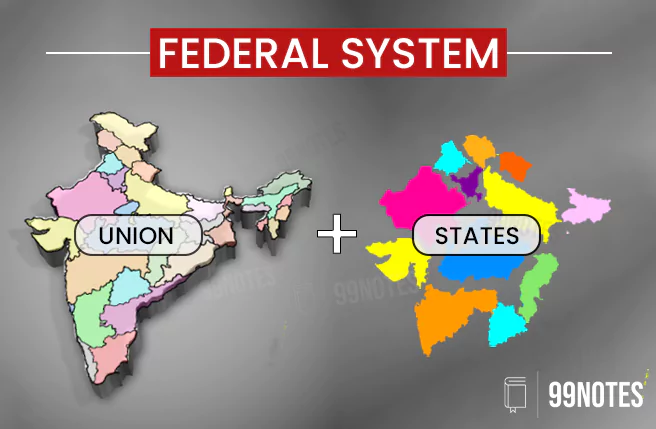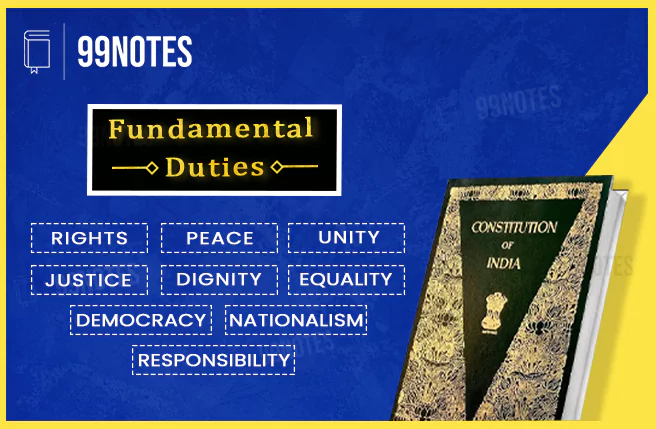Parliament being the supreme legislative body in the country, its primary function is law-making. All legislative proposals in Parliament are brought in the form of bills. A Bill is a draft statute and cannot become act or law unless it has received the approval of both the Houses and the assent of the President. The process of law-making begins with the introduction of a Bill in either House of Parliament. All stages of legislative processes are the same in both Houses. A Bill can be introduced either by a Minister or a private member. If a bill is introduced by…
Author: Team 99Notes
Governor of States Article 153 of the Indian Constitution states that “there shall be a Governor for each state”. The Constitution of India establishes a Parliamentary form of Government at both central and state levels. Just as the President is the constitutional head of the state, the Governor is the constitutional head of a state (federal units), who is aided by a council of ministers headed by a CM. Though the Governor is the chief executive head of the state, their position is ceremonial, the same as the President of India. True power lies with the Chief Minister and the…
Salient Features of Indian Constitution The Constitution of India is a foundational document that governs India. It is not only the highest law in the country but also a symbol of India’s values and governance. Adopted in 1950, it shapes India’s political landscape and ensures rights and freedoms for all its citizens. This article will explore the most important characteristics, or salient features of Indian Constitution. The Indian Constitution is considered unique in its contents and spirit worldwide. It has the distinction of being most lengthy and detailed due to the vastness of the country and the unique socio-economic and…
The success of the Indian federal system rests not only on cordial relations and close collaboration between the Center and the states but also on the interrelationships of the states.In India, interstate relations are characterised by both conflict and collaboration. There are disputes among Indian states over sharing water and territorial boundaries. The disputes have resulted in violent clashes between states on several occasions; a recent example is violence that happened over the Assam-Meghalaya border dispute.However, the interrelationship of the states is also about collaboration and coordination, which was evident in the successful GST rollout, in the establishment of The…
Centre State Relations Centre State Relations in India are fundamental aspect of the country’s federal structure, ensuring a balance of power and responsibilities between the central government and individual state governments. These relations are categorized into three broad spheres: legislative, administrative, and financial. Legislative relations define the law-making powers, administrative relations deal with the distribution of financial resources. These frameworks facilitate cooperation and coordination, ensuring national integrity while accommodating regional diversity. The Constitution of India establishes a federal state and gives both the Centre and the States the authority to act independently within their respective spheres of jurisdiction. Concept of…
In modern democracies, two kinds of relationships exist between the Legislature and the Executive; it can be defined by either the Parliamentary or the Presidential government system. The Parliamentary system involves a fusion of the Executive and Legislature, and the Executive is responsible to the Legislature for its acts and policies. It is also known as the Westminster Model (Location of the British Parliament), as it originated in Britain and is prevalent in countries like Britain, Canada, India, Japan. The Presidential system is based on a rigid separation of power, where the office of the President is independent of the…
Federalism is a governance mechanism in which the state’s sovereignty is distributed between different units, i.e. centre, state and local bodies. It is a vertical distribution of power, i.e. division of power between different layers of government. It seeks to define the relationship between the central government and regional governments. It institutionalises political cooperation and collective co-existence. A federation is a political arrangement made through a contract or agreement between various units. These units are known by different names: states in the USA and India, Cantons in Switzerland, Republics in Russia and Provinces in Canada. Usually, there are two layers…
Fundamental Rights Fundamental Rights represents the essential human rights that are universally recognized as inherent to all individuals irrespective of their nationality, place of residence, sex, ethnic origin, color, religion, language, or any other status. In the context of India, these Fundamental rights are given in the Indian Constitution, specially in Part III (Article 12 to 35), guaranteeing civil liberties to each citizen to lead a life of dignity and freedom, while also imposing upon the state the duty to protect rights from infringement. These Fundamental rights are crucial in democracy as they ensure the individual’s comprehensive protection from any…
The idea of fundamental duty refers to a sense of moral obligations and responsibilities that an individual should uphold as a member of society and a nation. It serves as a moral compass for individuals, guiding them to act responsibly, ethically and with consideration for the nation’s well-being. It is often associated with the concept of citizenship and a sense of commitment towards the welfare and progress of the nation. The fundamental duties and the fundamental rights are interrelated concepts. The rights can be properly realised if the citizens perform their duty. If one performs his/her duty, the rights of others…
“While we want this Constitution to be as solid and permanent as we can make it, there is no permanence in a Constitution.” -Jawaharlal Nehru The Constitution of a country is the fundamental law of the land. It has higher sanctity and more permanence than ordinary legislation. However, a democratic constitution has to be particularly responsive to the changing conditions. A government based on popular sovereignty cannot ignore the changing will of the people. The power of the Indian Parliament to amend the Constitution is given in Article 368 in part XX of the Constitution. It provides that Parliament may…




![Salient Features Of Indian Constitution [Upsc Notes] Major Salient Features Of Indian Constitution](https://99notes.in/wp-content/uploads/2023/08/salient-features-of-indian-constitution-banner-99notes-upsc-654cce9bf3d76.webp)

![Centre State Relations- Legislative, Administrative, And Financial [Upsc Notes] Everything You Need To Know About Legislative Procedures In The Parliament](https://99notes.in/wp-content/uploads/2023/10/centre-state-relations-banner-99notes-upsc-654cce900b0fe.webp)


![Fundamental Rights Of Indian Constitution: Article12-35 [Indian Polity Notes For Upsc Exams] Everything You Need To Know About Legislative Procedures In The Parliament](https://99notes.in/wp-content/uploads/2023/09/fundamental-rights-banner-99notes-651fdb2e2cee1.webp)


